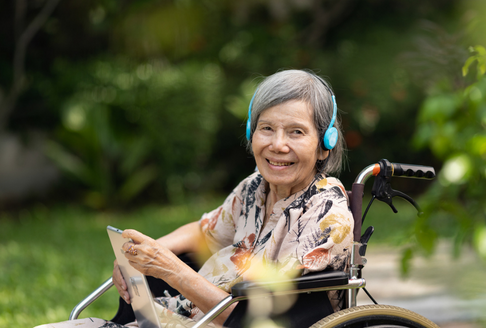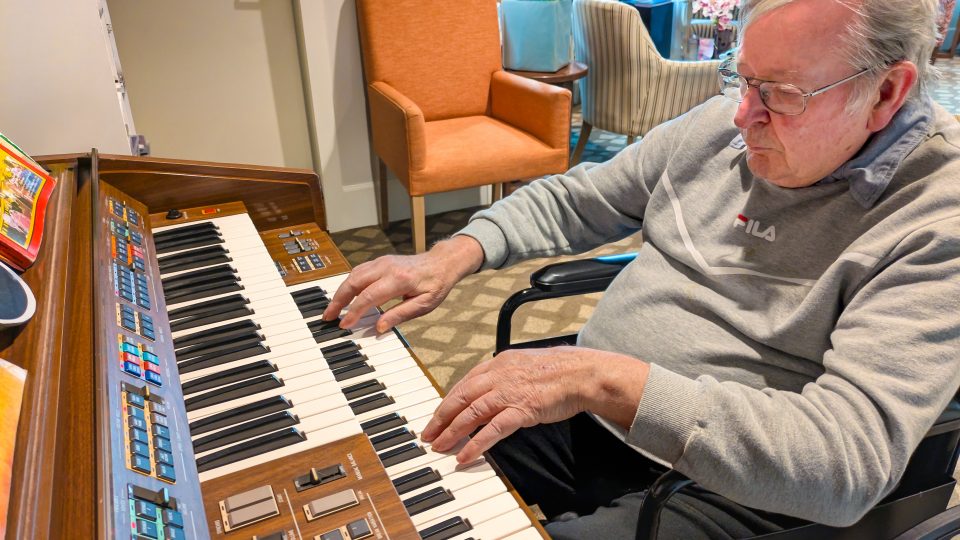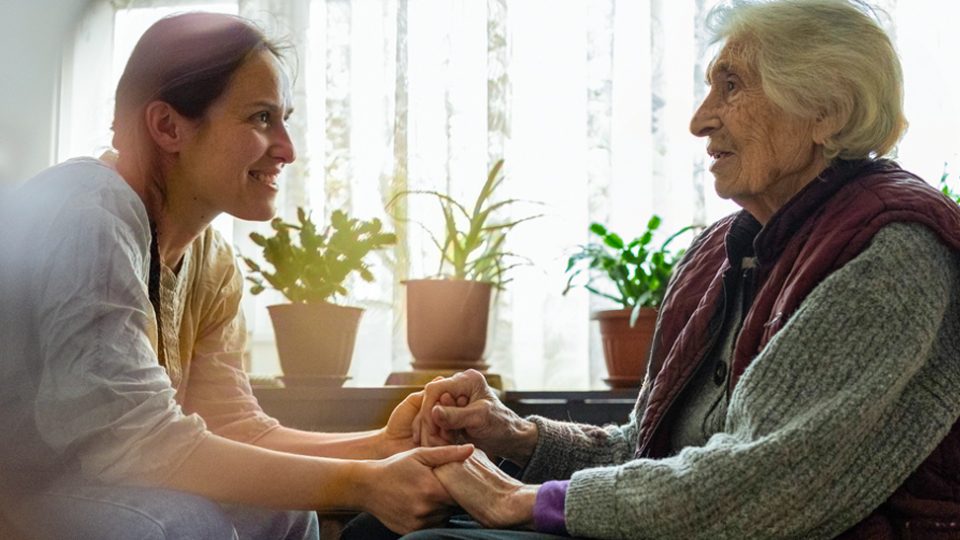Music as a supportive therapy for memory loss
- 02 Dec 2022

In the opening moments of the documentary ‘Alive Inside’, a startling event takes place. A 90-year-old woman with dementia is struggling to remember a time in history. She looks apologetically at the interviewer as she explains how her memory has faded. She seems slightly embarrassed by the fact and resigned to her fate.
Remarkably, when the interviewer plays music from the past, her eyes light up. She starts to recall a range of events and occasions taking place in her life at that time. Names, facts, circumstances and laughter pepper her speech as she recalls things in detail. Things that just seconds ago were lost to her.
Which leaves open a tantalising thought: are people experiencing memory loss actually going through a process where those memories are lost forever? Or are some pathways to those memories just more blocked than others?
No one can doubt the degenerative nature of dementia, Alzheimer’s and many other conditions affecting recall and memory. Currently, there is no cure for dementia and Alzheimer’s. For people experiencing these conditions, however, there is an ability to improve quality of life through supportive therapies.
Positive experiences have been recorded in relation to the impact of music therapy on many people with these disorders. What if, at least in the early stages, music therapy can make a significant impact on the quality of life for people experiencing memory loss?
Music at Baptcare residential aged care communities
Baptcare offers residents the opportunity to enjoy live music across its residential aged care communities. At a recent piano concert provided by one of our talented volunteers, the joy experienced by residents was on full display. Eyes brightened as many recalled childhood piano lessons, while others recalled singing rehearsals as part of the school choir.
Caroline*, a resident of one of our residential aged care communities in Melbourne, shared happy memories of singing for the nuns at her convent school. “I started singing lessons at school when I was six years old,” she said. “We did group singing next to the piano – I remember much later on performing the Sleeping Beauty opera. We’d always sing at the cathedral on Sundays and a nun would play the piano.”
Another resident, Philippa*, shared her experiences learning piano with a strict teacher who would rap her over the knuckles with a wooden ruler if she hit a bad note. “Madam Sophie* was so strict! Oh, I dare not hit the wrong key during practice!” she laughed.
Stories like these were shared between residents and staff well after the concert had ended. People were connecting not only with their cherished memories of days gone by, but also with each other. (To watch a short video profiling one of our volunteer pianists, Louis Schmidt, click here).
What is music therapy?
Music therapy has been found to reduce agitation in people experiencing dementia (Livingston et. al. 2017: 2703). Dementia Australia lists music therapy as a non-drug alternative therapy for people living with dementia which may improve quality of life. But what is it?
The Australian Music Therapy Association (AMTA) is Australia’s peak body for music therapy. It defines music therapy as ‘the intentional use of music by a university-trained Registered Music Therapist (RMT) that draws on an extensive body of research to incorporate a range of music making-methods within and through a therapeutic relationship’ (AMTA 2020: 2).
The organisation has a set of five Competency Standards that all applicants must satisfy – music skills, psychosocial knowledge, clinical knowledge, music therapy knowledge and music therapy skills. Registered music therapists create bespoke music therapy programs to address specific client goals.
Some limitations of music therapy
While music therapy has seen positive effects for some people with dementia, it’s true that not everybody responds well to this style of intervention.
Garrido et.al. (2020) conducted a trial of a music playlist guide with 45 people with dementia and their caregivers in residential care facilities and home-based care. Their research indicates that while improvements to quality of life can be enjoyed by those experiencing dementia, multiple studies show that some people do not respond to music therapy in a positive way (Garrido et.al. 2020:220). This points to the importance of trained music therapists developing and monitoring programs to ensure recipients’ mental health is not compromised. While music can be a source of great joy, it may trigger unhappy memories for some people or cause emotional overstimulation.
If you are living with or caring for someone with dementia, you may like to explore the value of music therapy as part of their supportive therapies. Consider speaking with your medical practitioner about the appropriateness of a tailored music program for your loved one.
To quote author and poet Michael Bassey Johnson: “Music replays the past memories, awakens our forgotten worlds and makes our minds travel.” And that is what fullness of life is all about.
*Names have been changed for privacy reasons. Stock image used.
References:
AMTA (Australian Music Therapy Association) 2020 Royal Commission – AMTA Response to Counsel Assisting’s Proposed Recommendations
Garrido S, Dunne L, Stevens CJ and Change E (2020) ‘Music Playlists for People with Dementia: Trialling a Guide for Caregivers’, Journal of Alzheimer’s Disease 77(1) 219-226. DOI 10.3233/JAD-200457
Livingston et. al. (2017) Dementia prevention, intervention, and care, The Lancet Commissions, Volume 390, Issue 10113, P2673-2734, December 16, 2017. http://dx.doi.org/10.1016/S0140-6736(17)31363-6
Community news
-

Wyndham Lodge Choir
Every Tuesday afternoon, residents gather in the sunny music room at Baptcare’s Wyndham Lodge Residential Aged Care community to sing together.
- 25 Jun 2025
-

The Green Team at Moonah Hub
The Sustainability Team, known as ‘The Green Team’, are based at Baptcare Moonah Hub in Hobart and are all about promoting environmentally friendly and sustainable practices in their office, the wider organisation and the local community. We asked Jess Miller, their enthusiastic and determined leader, all about the team and what they do. Read more below!
- 11 Jun 2025
-

Tips for addressing depression in older adults
Our post-retirement ‘golden years’ are often portrayed as a time of relaxation and enjoyment with plenty of time on our hands to enjoy the things we love. However, for many older adults this period can be overshadowed by struggles with depression.
- 05 Jun 2025
